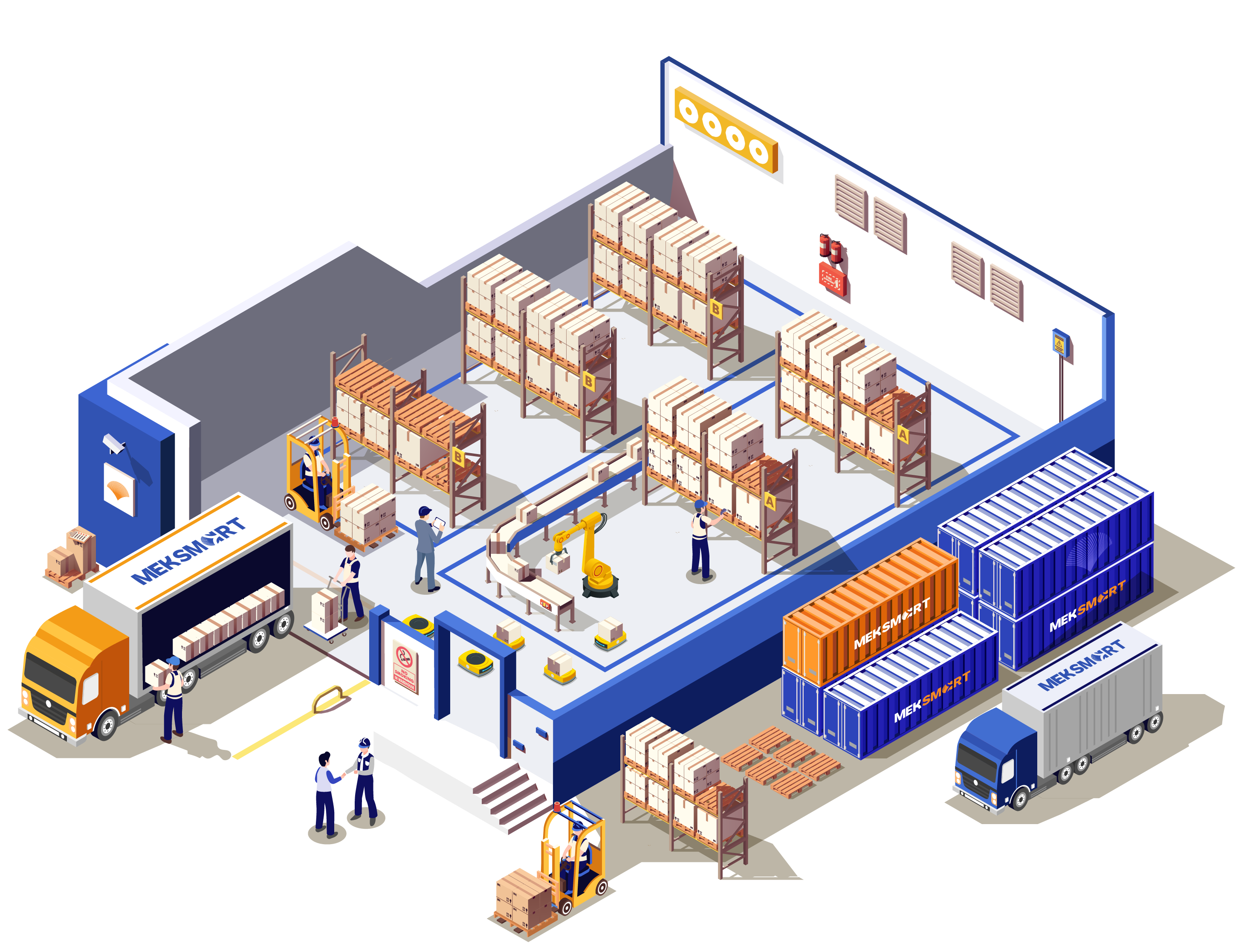MEKSMART
GENERAL NEWS
Author: TIÊN HUỲNH
Update: 16/11/2022
WHAT IS TRANSPORT FLEET MANAGEMENT? RESPONSIBILITIES OF FLEET MANAGER
You might want to know transport fleet management details when you are here. It is regular that traffic managers are aware of how critical it is to get an agile transport fleet management system to make the proper decisions in the companies.
The right functioning of the company relies on great planning and management of mobile resources. We have researched this topic and compiled some essential information about fleet management. Are you tempted to know? Let's get the ball rolling.

What is Transport Fleet Management?
Fleet management is known as a complicated task. The manual fleet management method lacks the transparency of drivers, dispatchers, and other business sections, thus generating huge operation costs, difficulty managing freight, and revenue loss.
Complete management consisting of vehicle monitoring, driver management, maintenance, and fuel monitoring can guarantee the safety of vehicles and drivers, minimizing the risks of vehicle operation and investment.
Below are some benefits of transport fleet management:
- Ensure the transportation process's general cost remains at a minimum stable level.
- Effective management of vehicles by providing the support of tracking via GPS technology to notice the operating time exactly and fleet locations from which businesses can build a strategic plan at a reasonable cost for transportation.
- Generally monitoring the activities of the drivers in different ways like service attitude, overtime, and speeding for vehicle registration.
- Provide essential information for managers in vehicle maintenance and economic efficiency, mileage, water level, oil level, revenue per trip, vehicle, etc.
Responsibilities of Fleet Managers
The fleet managers or headers have to deal with a huge workload. For details, you can find in the following part:
- Manage the transport fleet, truck drivers, and different kinds of vehicles.
- Monitor assets and records, means of transport, and the list of vehicle-related assets.
- Recruit and manage the driver teams and the assistants for any changes.
- Organize and manage time and attendance while coordinating with clients to meet their requirements.
- Track and keep the fleet costs at bay, like BOT costs, and roadside repair costs, to name a few.
- Analyze and suggest solutions to gain reasonable costs like travel, repair, and petrol.
- Update maintenance and repair plan
- Manage the vehicle insurance purchase, registration, and inspection as per the law.
- Report the fleet situation
Traditional management or spreadsheets will not suit businesses with large fleet sizes. This type of business sports a complex process with many departments and personnel operating.
Wrapping Up
That's all about the information on transport fleet management. This kind of management helps the product flow process smoothly and effectively.
Accordingly, fleet managers have a host of responsibilities like monitoring the asset and records, vehicle maintenance, and insurance purchases. For better transport fleet management, it is advisable to have the support of technology like applications or software.







